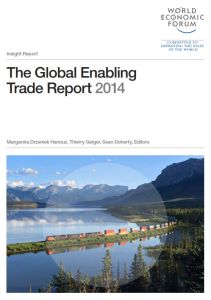Únase a getAbstract para acceder al resumen.

Únase a getAbstract para acceder al resumen.
Margareta Drzeniek Hanouz, Thierry Geiger and Sean Doherty (Eds.)
The Global Enabling Trade Report 2014
World Economic Forum, 2014
¿De qué se trata?
Certain countries excel at facilitating trade. Here’s what the rest of the world can do to catch up.
Recommendation
The World Economic Forum’s biennial report on global trade offers a much-needed benchmark for gauging regional and national progress in improving the various factors that facilitate trade. Editors Margareta Drzeniek Hanouz, Thierry Geiger and Sean Doherty highlight areas that authorities should focus on to bring about a list of commerce-boosting improvements. Their analysis is so stuffed full of facts and figures that, while it can be overwhelming to absorb, it serves as an essential reference guide on global trade. This level of information can provide businesses with a great starting place for assessing the advantages and disadvantages of almost any regional target market. getAbstract considers this report an essential addition to the ongoing global trade discussion among government and corporate leaders.
Summary
About the Authors
Margareta Drzeniek Hanouz, Thierry Geiger and Sean Doherty work for the World Economic Forum, an independent global organization that engages leaders across business, politics, academia and society in efforts to improve the state of the world.



















Comment on this summary